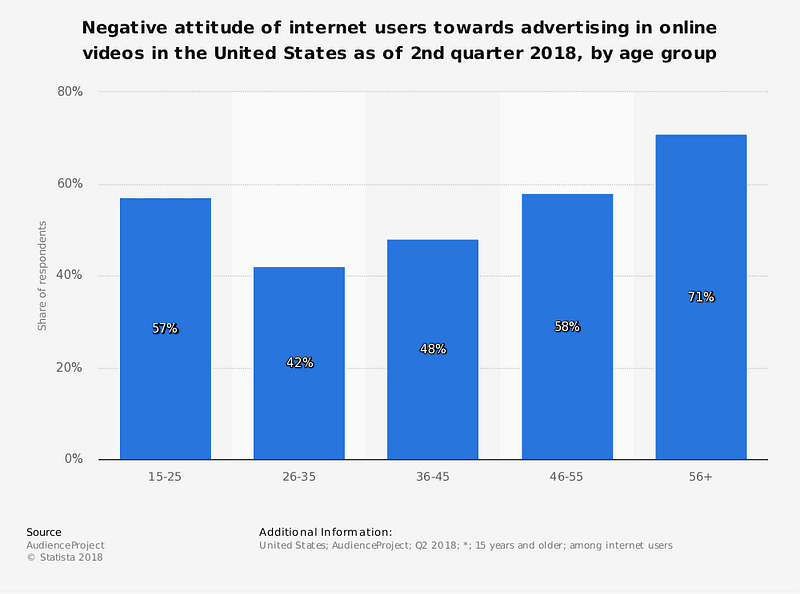Advertising Is Dead, Long Live Advertising
This article discusses the transformation of advertising and how AdEx is playing a role in this evolution with its innovative solutions.

At AdEx Network, we believe in the power of advertising. We also believe it should be used right — and for good.
Have you noticed that the mere mention of the terms “marketing/advertising” makes the average person cringe? This makes us, the people happily employed in the field of marketing and advertising, very sad — but we’re not here to whine. Instead, we’ll take a look at why is this so and what can we do to change it.
Give us back our privacy
A couple of years ago I happened to share an elevator ride with someone working at Facebook. He made a funny joke, I responded and we hit it off. I used the opportunity to ask him if its true that Facebook listens to us through our phones to then target us for ads based on keywords we say IRL.
He didn’t confirm or deny this; instead, he said “We have the technology to do this; it would be stupid not to utilize it”.
And while it’s simply grand that technology has developed so much, it’s also a big part of the problem. In its attempt to maximize sales and conversion rates, the ad tech industry has reached a level of creepy that we no longer can deny or accept.
Advertising has become a cyber stalker we can’t seem to lose, and no restraining orders in the form of GDPR or other legislation can help us.
This is why for a lot of us, advertising equates privacy/personal data abuse. Subsequently, we revert to ad blockers — but this doesn’t negate the state of mass surveillance we live in; it just makes it easier not to think about it. We’re still being watched and profiled for the purpose of predicting our next purchase.
The good news is, this doesn’t have to be the standard; on the contrary. There are many ways to achieve good, granular targeting without being data-greedy. Contextual advertising, which we employ, is just one of them.
An advertising industry that works well and is trusted by consumers means a free, no-paywall web free for anyone in the world, and makes the internet sustainable
Such a scenario empowers free speech, freedom of choice and generally will have a positive impact on all areas of our life.
Gaining back the trust of the average user will be a process — and likely a painful one at that — but it is up to us advertising and marketing professionals to do it. We simply must demand and create ad tech that is ethical and non-aggressive.
Skip! Skip! Skip!
Speaking of aggressive… let’s talk about pop-ups, pop-unders, unskippable ads, takeover banners, videos on auto-play, and so on.
They’re intrusive, annoying and impossible to avoid — and yet, for a lot of advertisers they are a main acquisition channel.

Of course, some of these formats can work quite well, if used right — take pop-ups for example. A recent study by Sumo demonstrates their ability to convert — especially when used in the correct context. This makes sense, given that pop-ups and pop-unders are more resistant to banner blindness. Generally, however, the overall efficiency of intrusive ad formats is questionable. We at AdEx believe that everyone deserves the right to consume content without having to close a number of pop-ups or extra browser windows/tabs they never wanted open in the first place.
Equality for all… advertisers
The use of intrusive ad formats is particularly popular with products and services that are restricted from advertising on traditional ad networks (think adult entertainment, gambling, etc.) — such advertisers simply have no other choice. And this is part of the problem.
We understand that certain restrictions are unavoidable — many countries, for example, have clear legislation and guidelines on advertising financial products, medication, etc. and this is all right. These constraints are there to protect users.
However, in many cases ad networks apply arbitrary restrictions. They do this to avoid unnecessary issues with regulators and protect themselves from liability and legal action; sometimes, it’s even done to eliminate competition. Take the example of Facebook restricting ads on blockchain/cryptocurrency projects, among many other verticals. This doesn’t sit right with us.
We believe that everyone should be able to advertise their service or product — even if we don’t agree with it or like it. It is not up to a company to be the arbiter of that. This is why we welcome advertisers and publishers from all industries. It’s time to bring censorship resistance back to the ad tech space.
Make ads count
In the industry, there are two main opinions when it comes to advertising: one claims that advertising creates needs, and the other one — that it simply fulfils them.
Personally, I tend to look for the golden mean. We now live in a review- and rating-driven world where authority, recommendations and reviews matter more than ever. For a majority of consumers, the decision to purchase a certain good or service is born out of the need for this good/service, and follows meticulous research. When that’s the case, a finely positioned, contextually targeted ad can easily close the deal and bring a company a new client.
But it is also true that we are all victims of overconsumption — so ads can often persuade us to buy something we didn’t know we needed. This is why an enormous amount of effort is put into creating consumer profiles, analyzing past purchases to predict future ones and generally doing everything possible to make that online sale. This is where things become creepy and privacy is violated.
From loss of trust to trustless
Years of violating trust has lead us to perceive it as a currency in this new economy we live in, the currency of interactions. And advertising has lost its trust.
As author Rachel Botsman puts it nicely, “trust is a confident relationship with the unknown”. She goes on to say that transparency is not the solution for fixing trust .
“If we need for things to be transparent, we’ve actually given up on trust,” Botsman says.
The thing is, though, trust is lost, and we need to get back to integrity at scale. At this point, we can’t expect companies to self-regulate; we need to push them in the direction of becoming trustworthy again. The way we’re doing this is through empowering the ad tech industry with a transparent, trustless technology stack that works well — and helps the advertising ecosystem gain back the trust of the consumer.
Interested in AdEx? Follow us:
X (Twitter) | Telegram | Reddit | Facebook | LinkedIn | Discord
